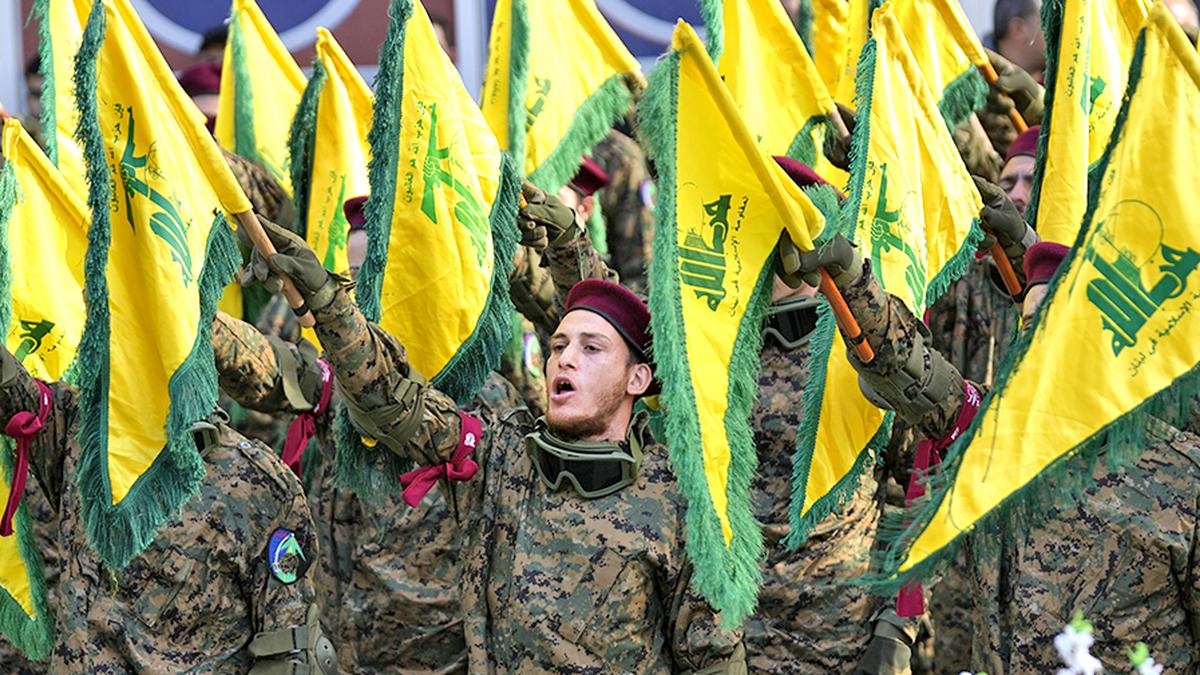
The war of words that unfolded following the ‘prayer’ highlights larger, long-standing schisms in Lebanon over Hezbollah. File.
| Photo Credit: AP
The nun stood in front of a group of young students at a Lebanese Christian school and asked them to pray for the “men of the resistance” in southern Lebanon who she said were defending the country.
The men to whom nun Maya Ziadeh was referring were members of the Lebanese Shia militant group Hezbollah, which has been clashing with Israel across a volatile border for nearly six months, becoming a critical regional player as the Israel-Hamas war persists in Gaza.
A video capturing Ms. Ziadeh’s comments was widely circulated online earlier this month, outraging some who accused her of “brainwashing” the children and imposing her political views. Others rallied to her support, commending her stance as courageous and honourable.
The war of words that unfolded highlighted larger, longstanding schisms in Lebanon over Hezbollah, now amplified by the Lebanon-Israel border clashes and by fears that an already crisis-hit Lebanon could be dragged into an all-out war.
“There are sharp divisions over Hezbollah’s weapons,” said Sami Nader, director of the Institute of Political Science at Saint Joseph University of Beirut. And while there’s wide support for the Palestinian cause, he said, there are “differences over the degree of such support.”
Lebanon is home to multiple religious groups. Politically, the presidency is given to a Maronite Christian, the parliament Speaker post to a Shia Muslim and the Prime Minister’s post to a Sunni Muslim.
Although Hezbollah has alliances with figures from other religious groups, the base of its support lies in the Shia community, while many Christians and Sunnis accuse the group of hijacking the country. The nun’s speech generated added attention — and for some, furor — in particular because it came from a Christian religious figure.
‘Men of resistance’
In the recent video, Ms. Ziadeh called for praying for the “children, people and mothers of the south and … for the men of the resistance,” describing those who fail to do so as “traitors,” a characterisation that many found troubling, especially given the young age of her audience.
“In the south, there are students your age who say that ‘our only dreams are to protect our land,’” the nun told the children.
Lebanese Christian anti-Hezbollah activist Antonios Tawk criticised Ms. Ziadeh on X, calling on the Maronite Catholic church to act “because our children are being brainwashed.”
Meanwhile, Gebran Bassil, head of the Free Patriotic Movement party, Hezbollah’s main Christian ally, argued online that when Ms. Ziadeh called for prayers, “she was implementing the teachings of Jesus.”
Ms. Ziadeh couldn’t be reached for comment.
Officials with Hezbollah, a Shia military and political powerhouse in Lebanon, say the group’s cross-border strikes are in support of Gaza and argue they divert some Israeli forces that would otherwise be focused on Hamas in Gaza, where the territory’s health officials say the Israel-Hamas war has killed more than 32,000 Palestinians.
To Hezbollah’s critics in Lebanon, the fighting is a reminder that the group’s weapons constitute “a threat …because they give Hezbollah a monopoly over decisions outside state structures,” said Randa Slim, senior fellow at the Washington-based Middle East Institute.

